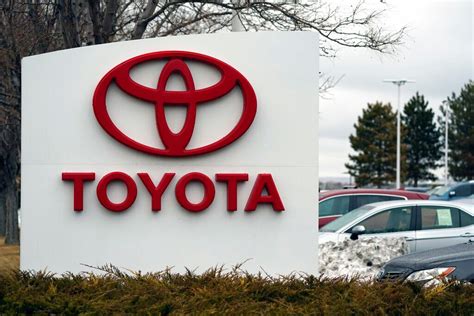The recent raid on Toyota’s facilities, as part of an expanding safety testing scandal, has thrown the automotive industry into turmoil. The news has left many car enthusiasts and consumers questioning the very fabric of the industry’s commitment to safety and ethical practices. This isn’t merely a scandal about one isolated incident; it’s a broader reflection of systemic issues that plague even the most trusted brands. A user recounting their positive experience with a high-mileage Corolla underscores why the brand has earned loyalty over decades. Yet, this trust can crumble quickly when the core values of safety and transparency are compromised.
Consider the broader implications of Toyota being accused of falsifying collision safety data. This malfeasance doesn’t only shatter consumer trust, but it also opens a Pandora’s box regarding the veracity of safety claims across the industry. When such a heavyweight in the car industry, lauded for its reliability and longevity, shows cracks in its ethical armor, it pushes the entire sector into a crisis of credibility. A car is more than just a mode of transportation; it is a complex piece of machinery where each part’s integrity can mean the difference between life and death in an accident. Adding to the public outrage is how regulators, like US DoT, might now feel compelled to scrutinize these companies even further.
Another comment draws attention to Toyota’s alleged lobbying against climate change initiatives. A hyperlink mentioned in a comment points to Toyota being ranked as one of the worst automakers on climate lobbying globally. Critics argue that the company, much like its peers, rushes into electric vehicle (EV) markets not out of genuine environmental concern but driven by profit margins. Ford and GM are mentioned as scarcely better, looking to exploit the lucrative EV space while dragging their feet on broader climate responsibilities. This comment underscores the cynicism that surrounds corporate giants proclaiming eco-friendliness while their actions suggest otherwise.
When trust is broken in this manner, it doesn’t just affect customers who are already brand loyal. A legacy reputation, painstakingly built over decades, can disintegrate within weeks. This is reminiscent of Volkswagen’s emissions scandal that left a dark stain on its brand. It’s not just about the immediate fallout or the punitive measures that follow. It’s about the long-term damage inflicted on a brand’s integrity, affecting not just individual customer choices but also broader market perceptions and regulations.
Reflecting on Toyota’s scandal, it’s vital to consider broader systemic issues. Corporate wrongdoing isn’t isolated to Japan or Toyota. It’s a pervasive problem pointing towards deeper structural and cultural flaws within the industry. The same patterns of malfeasance, PR apologies, and negligible accountability are observed globally. For instance, a commenter pointed to how Akio Toyoda’s apology, despite rooted in Japanese customs of public accountability, could do little more than similar western corporate apologies tailored by PR teams. This raises questions about the efficacy of corporate governance structures across the globe and the need for regulatory reforms that place safety, transparency, and ethical standards at the forefront.
Ultimately, this scandal serves as a grim reminder of the auto industry’s current state. While the car models in question might continue to dominate sales, the ethical and safety lapses revealed act as a war cry for consumers and regulators alike. For every loyal customer singing praises of Toyota’s longevity and reliability, there’s another grappling with the betrayal of a brand they once trusted implicitly. The scandal is not just a challenge for Toyota but a wake-up call for the entire auto industry, urging a reevaluation of corporate priorities and the very essence of trust in modern business practices.


Leave a Reply